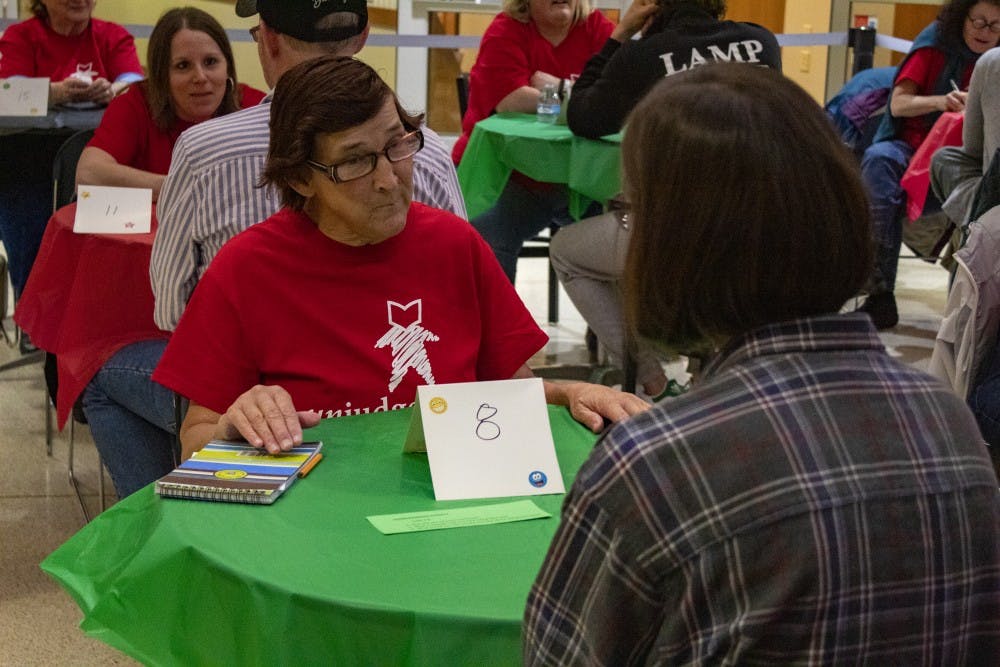The Monroe County Public Library asks for visitors to care for the books they check out. Mind the pages. Ask for an extension. Return in the same, or better, condition than you found it.
The same applies while checking out human books.
From 2-5 p.m. this Saturday, the Monroe County Public Library had its second year of the Human Library. This event began in Denmark in 2000 and has since expanded internationally.
Sixteen people, mainly local Bloomington residents, volunteered to be “checked out” by visitors, each with their own title. A few titles read “Tourette’s Syndrome,” “Transgender” and “Life After Death.”
Human books are people who have been stigmatized based on gender, sex, life choices or occupation.
Readers checked out titles and were led to tables to speak with the human book.
Bobby Overman, non-profit central specialist at the MCPL, explained the experience for books and readers alike.
“You can have a one-on-one conversation with someone who’s experiencing homelessness, has experienced being bipolar, being an ex-offender,” Overman said. “Tough questions are expected.”
One human book, Marilyn Burrus, volunteered to share her experiences with addiction, incarceration and her life today.
When she was incarcerated in 2008 for dealing heroin, she had no prior criminal history. Burris was sentenced to 10 years.
“There’s a lot of stigma behind dealing,” said Burrus. “It was all just to keep my habit going.”
Last year, she received a bachelor’s degree in substance abuse counseling and has co-founded the non-profit Courage to Change Sober Living, which provides recovery services to lower-income residents of Monroe County.
Sarah Fogleman, who works at the Russian Studies program at IU, said she felt humbled after talking to Burrus.
“I feel overwhelmed by how strong she is and how courageous she is to tell her story,” said Fogleman.
Other books were open to discussing Judaism, feminism, traumatic brain injury and parenting children with autism.
Burrus said that for many convicts and ex-convicts, their crime is not a representation of them as humans.
“When you haven’t been there and walked in somebody else’s shoes, I think it’s easy to be judgmental,” Burrus said. “We’re all just people.”




